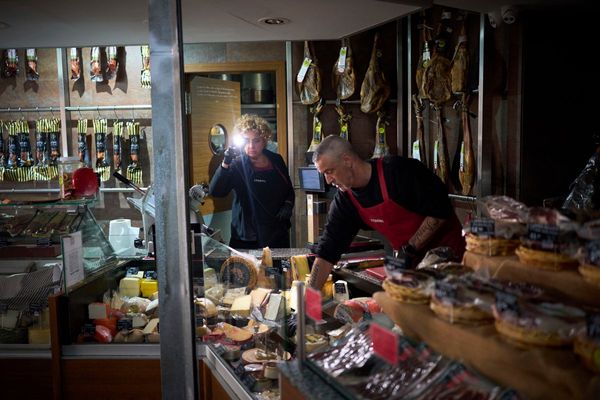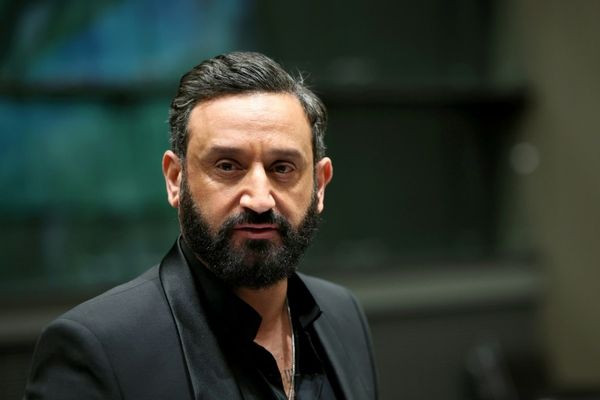Few football clubs in Australia could claim immunity from racially prejudiced pasts.
Warning: This story contains racist images.
In the mirror of historical societal bigotry, footy teams can so often be seen looking back, a reflection of the attitudes and biases of the time.
But while the reflections of some organisations have manifested themselves as a blurred likeness of society, others have stared back with every ugly pockmark and scar accentuated by the spotlight that beams down on the centre stage of sport.
Collingwood, arguably, has been the club most often associated with that image over time.
From Nicky Winmar's famous declaration of racial pride in front of the Victoria Park crowd, to Héritier Lumumba's ongoing criticisms of the way he and his Indigenous teammates were treated at the Magpies, Collingwood's apparent issues have been laid bare in the public eye, put on display and exposed to the masses for uncomfortable, unpleasant, but necessary critique.
Hawthorn, for the most part, has been a more subtle situation.
The Waverley mirror is one that has often been fogged over by the steam of success. Stories of racist recruiting policies and locker room remarks were masked by the fact the club was so incredibly dominant on the field.
But this new review is another swipe of the towel over the fog – and what lurks behind appears to be an ugly reflection of an oft-lauded club.
Blackface banners cause stir in '80s
The writing had been on the wall about Hawthorn's approach to race in years past – or more accurately, the writing was on the banners.
During their golden period throughout the 1980s, where they won four flags without any Indigenous talent playing in any of their premierships, two grand final banners created a racial stir for their use of blackface tropes.
The first, in 1988, showed a woman hanging Hawthorn jumpers on a clothesline with the words 'Bring 'em home to mama'.
In 1989, it was a Hello, Dolly-inspired 'Well hello Hawthorn … it's so nice to have you back where you belong'.
"There's no rhyme. I don't think there was a reason," Tony Wilson wrote in his book 1989: The Great Grand Final.
"Whenever I think of that banner, I think of Willie Rioli Snr, and Robbie Muir, and Chris Lewis, men who were racially vilified in an era when such abuse was considered by some to be a legitimate tactic."
Wilson had been recruited to Hawthorn around that time, and described playing with Willie Rioli Sr — younger brother of Richmond great Maurice Rioli — in the Hawks under-19s.
"[Rioli] was tiny in stature, but freakishly talented, especially around goal," Wilson wrote.
"I was captain, and remember one afternoon at Arden Street, having to ask some of our players to stop racially abusing North Melbourne’s Indigenous players, 'because everything you say to them, you’re saying to Willie too'.
"Willie didn’t play any senior games. Maybe he was too small. More likely he was too early. He was a star when he returned to the friendlier environs of South Fremantle in the WAFL."
Lagging behind in talent recruitment
In the first 75 years of Hawthorn's existence in the VFL, just two Indigenous players pulled on the gold and brown guernsey.
Cyril Collard (1957-58) and Percy Cummings (1964-65) played 18 games between them, before an apparent move away from recruiting Indigenous talent.
The Hawks were not alone in this approach – the 60s and 70s were noticeable for a dearth of Indigenous players in the VFL, with the notable exception of star players like Geelong's Polly Farmer and North Melbourne's Barry Cable making the move from Western Australia to try their hand at Victorian clubs.
Where the Hawks stood out as an anomaly was through the 80s and 90s.
As star players like Gavin Wanganeen, Andrew McLeod, Chris Johnson, Ronnie Burns and Michael O'Loughlin started to make their names, Hawthorn continued to hold out from selecting Indigenous players to join their senior ranks.
That was until recruiting manager John Turnbull brought Chance Bateman to the club in the 2000 draft.
Bateman was talented but raw. Small but highly skilled, he had been on Hawthorn's radar for a while when then-coach Peter Schwab and Turnbull headed over to the Batemans' Perth home to stay with his parents, Paul and Carol, to get to know him better.
They were instantly sold on the kid's prospects and snagged him at pick 48 in the 1999 national draft.
When Bateman asked why it had taken so long for Hawthorn to return to recruiting Indigenous players, Turnbull revealed a senior club official had, early in his career at Waverley, told him: "Just remember, don't draft anyone with skin darker than mine."
"Once he told me that, it was one of my goals to change all the misconceptions or preconceived ideas, those stereotypes people had about Indigenous people," Bateman told The Age in 2021.
"It wasn't just what they thought about them as people but it mattered what the footy club or people thought about them as players."
After two seasons, seven games, and plenty of promise, heartache hit the Bateman family. Chance's little sister, Candace, was killed in a train accident aged 15.
When he told the club he needed to go home to be with his loved ones, the Hawks said "stay as long as you like".
After returning and playing for Hawthorn's VFL side Box Hill, the rising star decided he needed a permanent move back home, and requested a trade to West Coast and Fremantle. By all accounts, the Hawks were happy to make it happen for the sake of the person, rather than the club.
But they couldn't make it work — and it only strengthened Bateman's resolve to use the opportunity he had been given.
"After they didn't trade me, [Turnbull] was over there [in Perth] and just said that Schwaby wanted to keep hold of me for next year," he said.
"So I just decided I'd come over and have a real crack and try to be the first Aboriginal to play 50 games [for Hawthorn]."
He would play 177 matches, including the 2008 premiership, and would become Hawthorn's first Indigenous life member.
Things were changing at Hawthorn.
Cyril Rioli's 'final straw'
The Bateman recruitment led to wave of Indigenous players coming to Hawthorn, as Schwab moved on from the club to make way for Alastair Clarkson in 2005.
Players like Buddy Franklin, Cyril Rioli and Shaun Burgoyne headlined a large group of Indigenous players who were drafted in to be a part of a new golden era of Hawks footy, winning four flags from 2008 to 2015.
The Hawks were trying to change their image, and they had been doing it well.
But incidents would still arise.
Hawthorn fans would become the face of the Adam Goodes booing drama, as some at the Hawks implored their loyal supporters to stop the derision.
"I personally don't like it," club legend Jordan Lewis said at the time.
"I don't get why they do it and I don't understand it. I would love for someone to come out and say why they do it … it's got to stop."
Hawthorn crowds were not alone in their booing of the Swans champion, but they had been in a strong position to help douse the fire.
Then-chairman Andrew Newbold said any messaging about stopping the booing was best coming from the players, rather than the administrators.
"It's disappointing," he told The Age at the time.
"I'm certain it's not racist. We have five Indigenous boys on our list and three of them were playing that night.
"But I must say it took me by surprise. In my view any commentary to our fans is better coming from the players."
The eventual result of a 'do nothing' approach from across the league — including Hawthorn — ended with Goodes leaving the game in heartbreaking scenes in 2015.
Behind closed doors, more issues reared their ugly heads.
A 'senior player' was accused in 2013 of asking whether the partner of an Indigenous player was "also a b**ng".
And in 2018, Rioli prematurely retired from the AFL, telling The Age that a comment at Launceston Airport from president Jeff Kennett about his wife's designer ripped jeans – and whether she wanted some loose change to help sew them up – was the "final straw".
Kennett maintained it was an innocent joke, and sent text messages and a letter to the couple in order to apologise.
"I felt belittled and humiliated," Shannyn Ah Sam-Rioli said at the time.
"The club kept saying I was overreacting, but they were portraying me as the angry black woman. They said later I had wanted to go home to Darwin for a while. That's not right."
For Rioli, he described it as 'eye opening'.
"I've never really spoken about what happened in Tassie, but I think there was a lot of gaslighting at the end of my career by the club," he said.
"It was the final straw.
"It opened my eyes … seeing how they were to us."
Former Lions champion Chris Johnson told ABC Sport that Rioli was right to be offended.
"Cyril and his partner have every right to feel the way they feel, and it may never be right that they feel comfortable going back to the club," he said.
"We always have to be forgiving of people, but sometimes enough is enough and sometimes you're better off without those people or that environment in your life."
Spectemur Agendo
Hawthorn is not alone in the way it has treated its Indigenous players over the decades.
Few clubs, if any, are immune from criticism.
But the history of the Hawks, and the latest allegations as made in the external review, will be cause for reflection and distress for Hawthorn fans, players and staffers alike.
Hawthorn's Latin motto is Spectemur Agendo – 'let us be known by our actions'.
Which actions those will be will come down to how the club responds from this point on.







